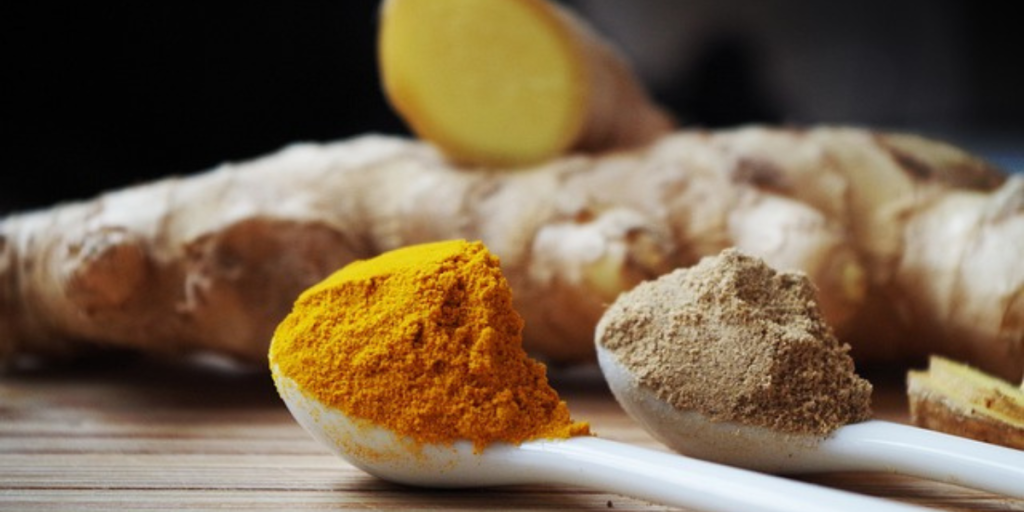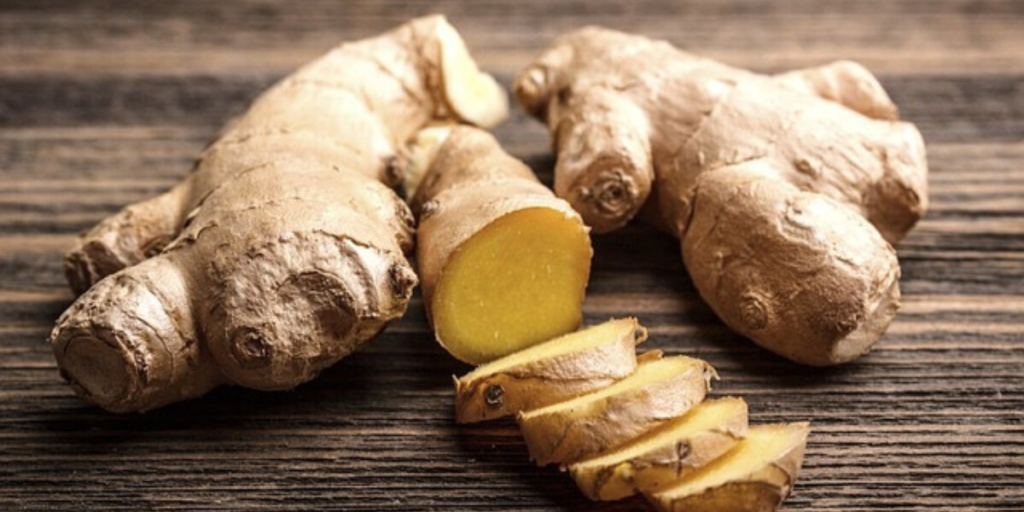Table of Contents

Ginger, scientifically identified as Zingiber officinale, has been an integral part of both traditional medicine and culinary practices for centuries. This adaptable root, known for its distinctive flavor and fragrance, goes beyond being merely a culinary delight, emerging as a powerhouse of health benefits.
From alleviating digestive discomfort to combating inflammation, ginger has secured its status as a natural remedy with a multitude of advantages. In this extensive examination, we delve into the extensive array of benefits associated with ginger, exploring its historical origins, nutritional composition, and the scientific basis supporting its varied therapeutic properties.
Historical Roots and Significance in Culinary Practices
Ginger’s roots can be traced back thousands of years, originating in Southeast Asia. This piquant root quickly permeated various cultures, including Chinese, Indian, and Middle Eastern cuisines, eventually traversing the globe through trade routes. Historically, It has been esteemed not only for its unique taste but also for its medicinal attributes.
Traditional medicinal systems like Ayurveda and Traditional Chinese Medicine (TCM) view ginger as a warming spice capable of balancing the body’s energies and promoting overall well-being. Its utilization in both sweet and savory dishes has made it a cherished ingredient in kitchens worldwide. It’s versatility ranges from imparting depth to curries and stir-fries to being a key component in soothing teas and desserts.
Nutritional Composition Of Ginger

Understanding the extent of it’s benefits necessitates an examination of its nutritional makeup. Although ginger is typically used in small quantities, its nutritional density is noteworthy. The primary bioactive compound in it, gingerol, plays a pivotal role in many of its medicinal properties. Furthermore, ginger encompasses essential vitamins, minerals, and antioxidants that contribute to its overall nutritional richness.
In a 100-gram serving of raw ginger, one can find approximately 80 calories, comprising 17.77 grams of carbohydrates, 1.82 grams of protein, and 0.75 grams of fat. It also serves as an excellent source of vitamins such as C and B6, along with minerals like potassium, manganese, and magnesium. This nutritional combination not only renders It a tasteful addition to meals but also underpins its health-promoting effects.
Digestive Well-being
One of it’s most renowned and extensively researched benefits lies in its capacity to support digestive health. Throughout history, ginger has been employed to alleviate a spectrum of gastrointestinal issues, ranging from indigestion to nausea.
Its’s digestive advantages stem from its ability to stimulate saliva production and inhibit gastric contractions as food and fluids traverse the gastrointestinal tract. This aids in preventing indigestion and mitigating discomfort associated with overeating. Additionally, it has earned recognition as a remedy for nausea, especially during pregnancy and chemotherapy.
Numerous studies have explored it’s antiemetic properties, revealing promising results. The active compounds in it, including gingerol, influence the nervous system, diminishing signals that trigger nausea and vomiting. Consequently, it emerges as a natural and effective option for managing diverse forms of nausea.
Anti-Inflammatory and Antioxidant Potency

Inflammation stands at the core of numerous chronic diseases, from arthritis to cardiovascular conditions. Ginger’s potent anti-inflammatory properties have been subject to scientific scrutiny, with ample evidence supporting its role in mitigating inflammation.
The active compounds in it, particularly gingerol, serve as potent antioxidants, neutralizing free radicals within the body. Free radicals, unstable molecules capable of damaging cells, contribute to chronic diseases and the aging process. By scavenging these free radicals, it safeguards the body’s cells from oxidative stress.
Research indicates that it’s anti-inflammatory effects parallel those of non-steroidal anti-inflammatory drugs (NSAIDs), minus the potential side effects associated with prolonged NSAID use. Integrating it into the diet may serve as a natural means to manage chronic inflammatory conditions, providing relief for individuals grappling with conditions like osteoarthritis and rheumatoid arthritis.
Cardiovascular Wellness
Preserving cardiovascular health is paramount for overall well-being, and it may play a role in promoting a healthy heart. Studies suggest that it can positively impact several risk factors associated with cardiovascular diseases.
Ginger has demonstrated the ability to lower blood pressure by relaxing blood vessels and enhancing blood flow. Additionally, it may contribute to reducing cholesterol levels, thereby diminishing the risk of atherosclerosis and heart disease. Some research even proposes that it may inhibit the formation of blood clots, further contributing to cardiovascular health.
While further research is essential to comprehend the full extent of it’s cardiovascular benefits, initial findings indicate that integrating it into a heart-healthy diet may offer protective effects.
Immune System Enhancement
The immune system acts as the body’s defense mechanism against infections and diseases, making its optimal function crucial for overall health. Traditionally recognized for its immune-boosting properties, it’s immunomodulatory effects are gaining scientific attention.
Ginger’s antioxidant compounds, including gingerol, contribute to its immune-boosting potential by neutralizing free radicals and reducing oxidative stress. Additionally, it exhibits antimicrobial properties, hindering the growth of specific bacteria and viruses.
Regular consumption of ginger may aid in supporting the immune system, reducing the likelihood of infections and expediting recovery when illness strikes. While ginger cannot replace a balanced diet and a healthy lifestyle, its immune-enhancing properties position it as a valuable component of a holistic wellness approach.
Weight Management Support
Maintaining a healthy weight is integral to overall well-being, and it may lend support in weight management endeavors. Research has explored the potential thermogenic and appetite-suppressant effects of ginger.
Thermogenesis involves the body generating heat and burning calories. Some studies propose that it may enhance thermogenesis, aiding the body in burning more calories and potentially contributing to weight loss. Additionally, it has been investigated for its ability to suppress appetite, leading to reduced calorie intake.
While it is not a standalone solution for weight loss, incorporating it into a balanced diet and active lifestyle may complement overall efforts to attain and sustain a healthy weight.
Cognitive Function

The link between diet and cognitive function is a burgeoning area of interest, and certain it compounds may possess neuroprotective effects. Oxidative stress and inflammation are implicated in neurodegenerative diseases, and it’s antioxidant and anti-inflammatory properties may offer protection to the brain.
Studies suggest that ginger may improve cognitive function by enhancing working memory and attention. While further research is needed to establish a definitive connection between ginger consumption and cognitive health, initial findings are promising and warrant continued exploration.
Anti-Cancer Potential
Ginger’s potential anti-cancer properties have become the focus of scientific investigation. Although further research is required to fully comprehend the mechanisms underlying ginger’s anti-cancer effects, preliminary studies suggest its protective properties against specific types of cancer.
Gingerol, the bioactive compound in it, has been examined for its anti-cancer properties. It is believed to inhibit the growth of cancer cells and induce apoptosis, a process leading to the programmed death of damaged or abnormal cells. Additionally, ginger has shown promise in reducing inflammation, a known contributor to cancer development.
It is crucial to note that while it exhibits potential in cancer prevention and treatment, it should not replace conventional medical treatments. Individuals dealing with cancer or undergoing cancer treatment should consult with healthcare professionals.
Anti-Diabetic Effects
Ginger may also play a role in managing diabetes and improving insulin sensitivity. Diabetes, characterized by elevated blood sugar levels, may benefit from ginger’s potential to regulate blood glucose levels.
Research indicates that ginger can enhance insulin
Have Read About The Health Benefits Of Coconut Rice





















